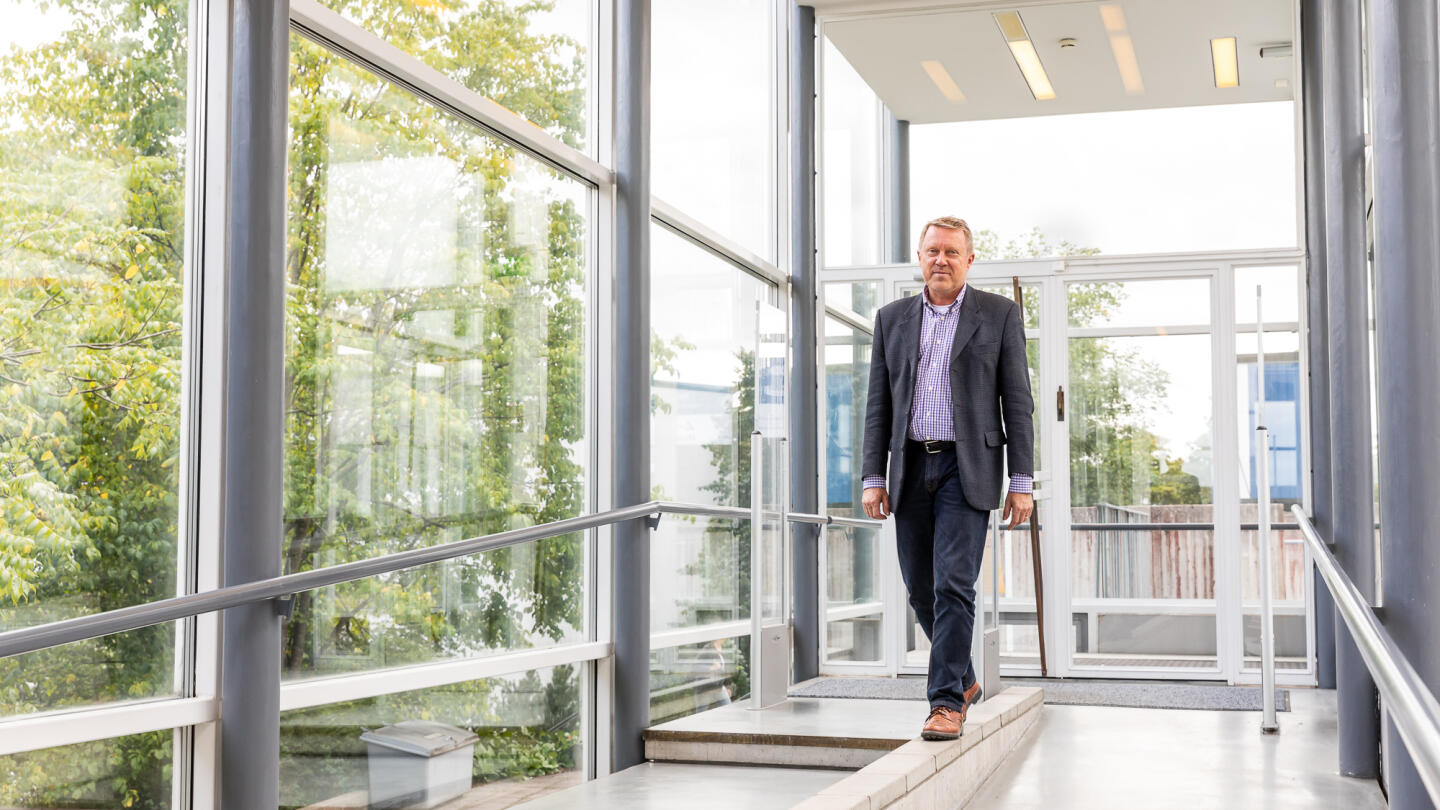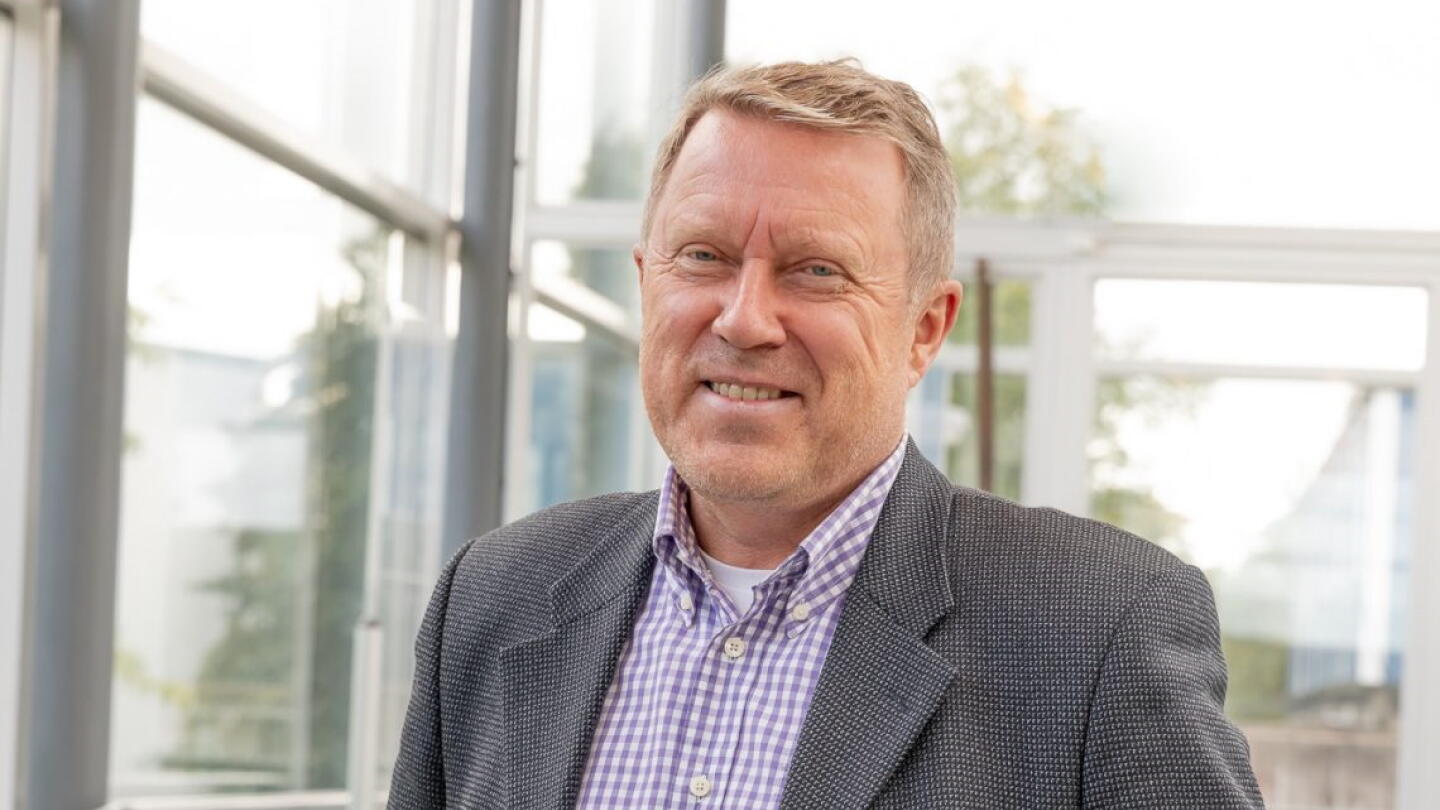Rector Jukka Kola: Focusing on Quality of Education and Research Is Priority
Jukka Kola, who began his term as the Rector of the University of Turku in early August, wants to navigate the University of Turku towards even higher quality in its main missions, research and education. – Only this way we can succeed and make an impact – make our country and the world a better place, Kola says.
Along with the other Finnish universities, the University of Turku is currently planning its strategy for 2021–2030 by the commission of the Ministry of Education and Culture. In the University of Turku, the process is led by Rector Jukka Kola.
– The universities’ strategic planning processes must focus on improving the quality of the main missions, research and education. That’s the foundation for everything else. If we don’t focus on the main missions, we don’t make progress, Kola summarises.
Having gained merits in the university field in Finland and abroad, Kola has a wide-ranging view of the missions and development of universities. In his opinion, the goals of education could be set higher.
– The Universities Act states that our task is to offer higher education based on free and independent research in order to serve our country and the humankind. I don’t think that we should be merely serving. We educate people who solve problems, but also, more specifically, grasp opportunities.
Multidisciplinary education offers one solution: by combining different fields and their expertise, it is possible to build interesting and impactful high-quality degree programmes which are timely, dynamic, and pioneering.
According to Kola, expanding the technology education of the University of Turku demonstrates the possibilities of multidisciplinary co-operation. In addition to mechanical engineering and material technology, the new degree programmes will also include other content.
– The new educational responsibility for the Chinese language is a good example of the possibility to combine language and culture studies with international business skills and leadership.
Global, world-changing objectives are accompanied by locality.
– Think global, act local. It’s interesting to see how the people we have educated help to develop a sustainable society and respond to the demand for workforce in different fields on a regional and national level.
“Internationality is an instrument for increasing competitiveness – not a goal in itself”
Kola calls for boldness for the University’s other main mission, research. He talks about taking risks in conducting research, something that is not greatly encouraged by current funding channels.
– There is currently too much mainstream thinking and reactivity in research and its funding. Universities should be taking initiatives and starting discussions in society, not just following others. When the funding is scarce, no one really dares to or is able to take risky initiatives. Taking risks in conducting research is necessary as otherwise certain issues would not be studied at all. However, the findings can be useful in a broader context if combined with e.g. multidisciplinary, phenomenon-based projects.
Kola has been promoting the internationalisation of the University of Turku ever since he got selected for the position of the Rector. The Rector says that internationality is not a goal in itself, but an instrument for achieving better quality and being more dynamic and attractive: internationality helps us to better understand the world’s phenomena and solve problems. In research, internationality concerns especially the themes of research and the University’s collaborative partners.
– Establishing strategic partnerships requires patience. This means choosing a few partners with whom we invest in and develop chosen fields of research and education. This calls for commitment from both parties.
Kola would also like to see closer and more target-oriented collaboration between the Finnish universities so that they would be globally more competitive together.
– There is unutilised funding potential in international networks as close as in the Nordic countries. Finnish researchers have been less successful in e.g. the NordForsk funding calls than the researchers from other Nordic countries.
“Leadership is service”
According to Kola, the decision made by the government of Finland this autumn to increase the amount of basic funding granted for universities is important not only because of the money, but also for the spirit and motivation of the University community as well as the feeling of being appreciated.
– Evaluations show that universities are workplaces where the work tasks are considered highly motivating. Academic work is often a life mission: when you work in research or teaching, your work is meaningful and valuable. These values are also important for many employees working in support services, as it is equally important to help implementing these matters. Shared values and an environment where everyone feels that their work tasks are important regardless of their personnel group promote communality, coping, and well-being.
Kola calls for peaceful working conditions for researchers.
– Researchers tire of constantly having to apply for research funding, so we should aim at a situation where they are not burdened by the endless applications. Management should pace research funding in a way that doesn’t lead the researchers to compete against each other at the very least. There are already enough competitors outside our University, Kola continues.
Kola considers leadership service.
– The task of a leader, for example a rector, is to ensure that those who we employ, both in research and education as well as in support services, can focus on the tasks they have been employed for.
Kola started his career in academic management when he was a fairly new professor of agricultural policy, and a group of young researchers asked him to apply for the position of head of department to challenge the established practises. Kola was selected. Kola was also asked to apply for the faculty management by the members of his own community. After working as a dean for two terms, Kola felt that he had acquired expertise that could benefit the whole university community. He applied and was selected first for the position of vice rector and then for the position of rector. He feels that he is still on the same path here in the University of Turku.
– I applied for the position in the management of the University of Turku because I felt like I had something to give for developing the University of Turku to become a more competitive contributor with more impact in the Finnish and international university field. I find it important to be open and build trust and that way, help the community operate better. You can’t expect to take any quantum leaps; it’s all about patient everyday work.
Text: Taru Suhonen
Photos: Hanna Oksanen
Translation: Lotta Junnila

